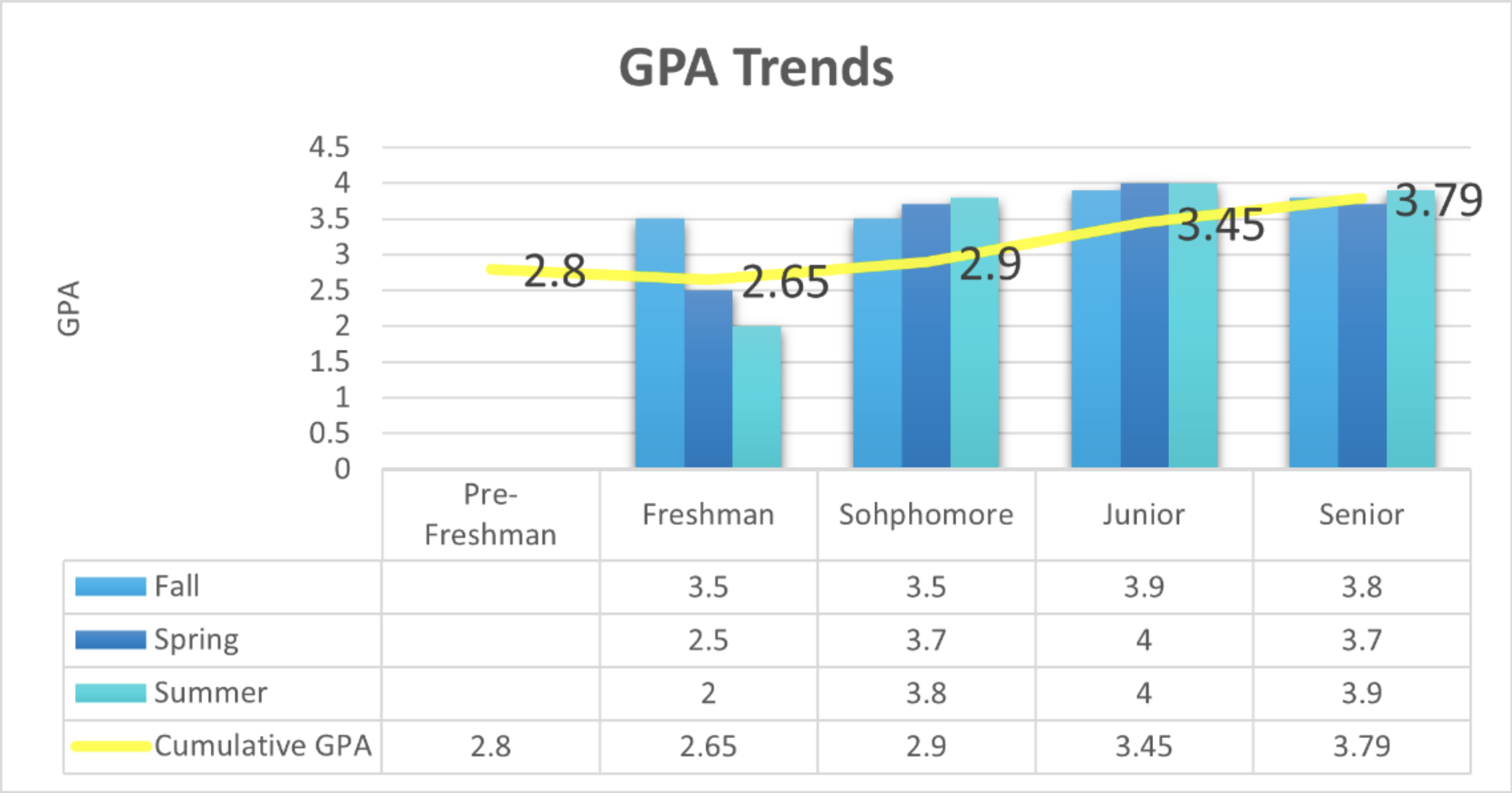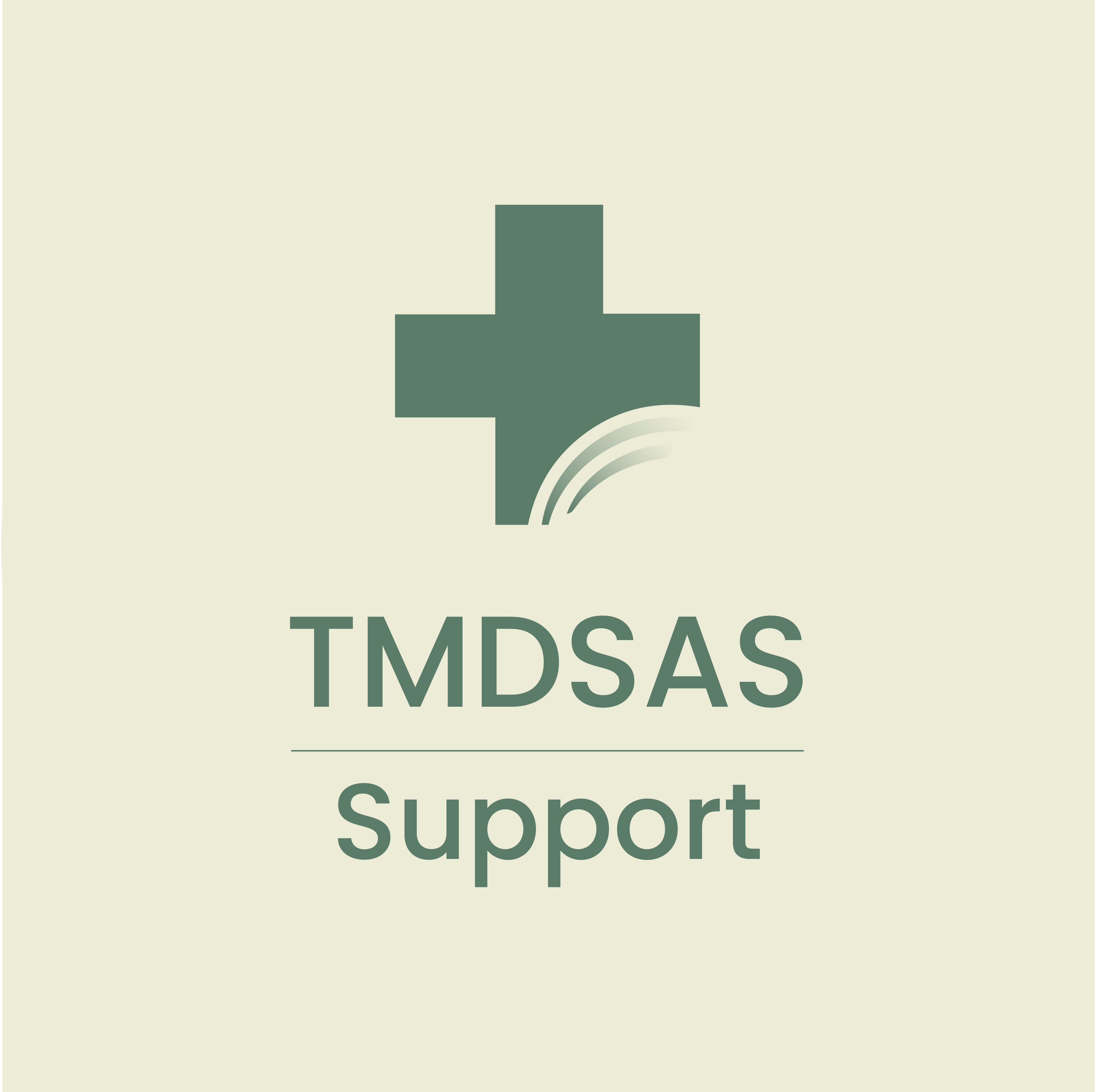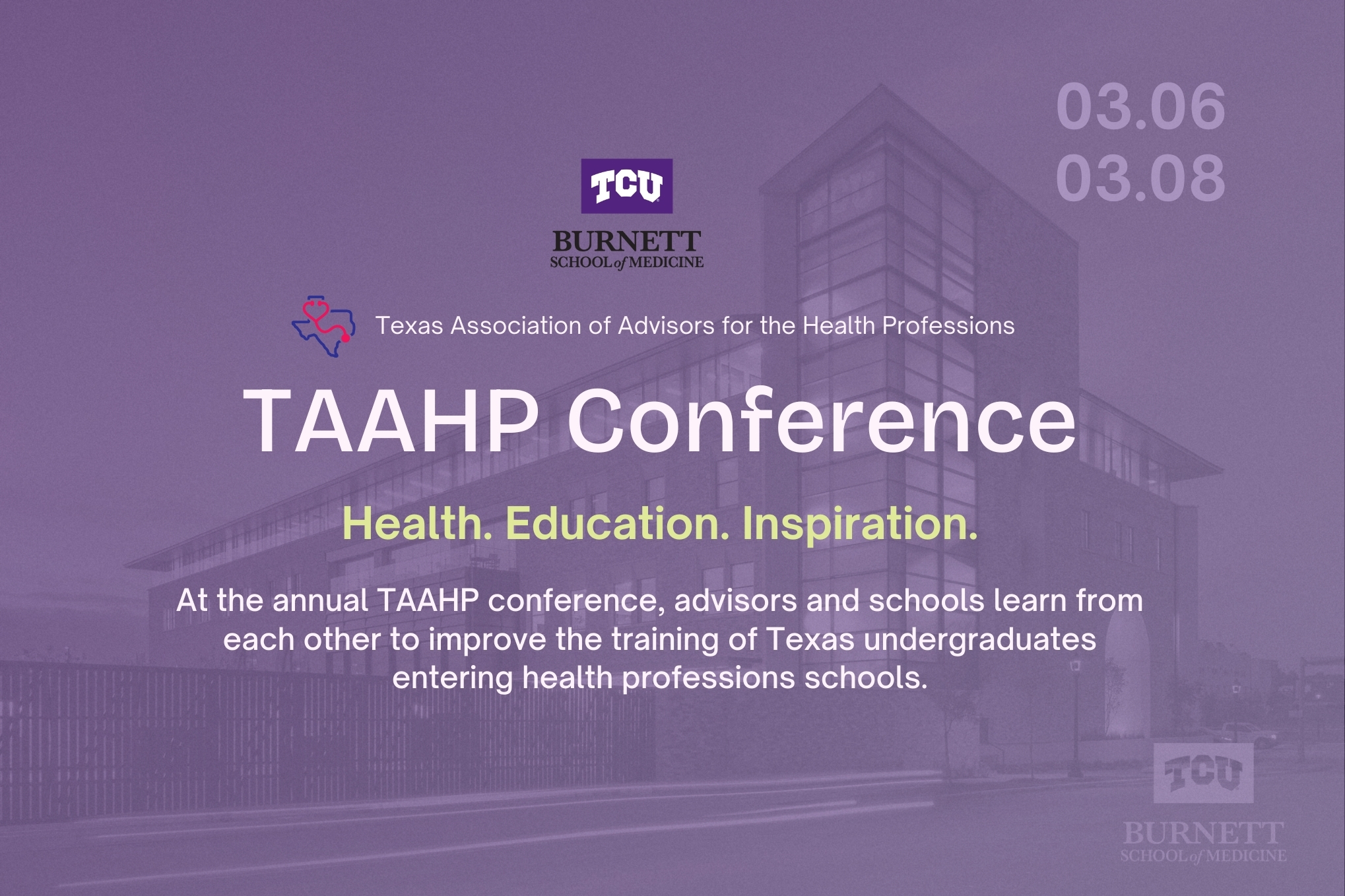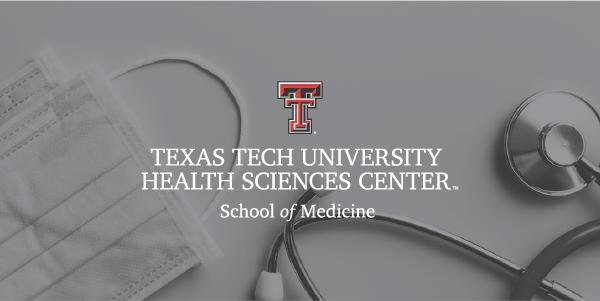A Bad GPA: It’s Not the End of the World
As final grades from the fall semester come in and you reflect on your recent academic
performance, you may find yourself feeling all kinds of emotions. Maybe you made a
few bad grades this semester? Your GPA took a dip or a nose-dive into figures that
shall not be named. You might feel all is lost and that when it comes time to apply
to your dream school, your application will surely be trashed, thrown out, dumpster
bound! This is simply not the case. One bad semester (or two) is not the end of the
world. Instead, focus on the improvement you can show over time and how that will
tell a much more accurate story of your resilience and determination.
The Upward Trend
Let’s take a closer look at how a bad semester, especially early on in your academic
career, is not as detrimental to your overall GPA as you might think.

Using the graph above in this scenario, the Fall term of your freshman year starts
out great. You came in with a 2.8 GPA as a result of a few pre-freshman courses taken
in high school, and by the end of the Fall term, you’re sitting with a pretty 3.5
GPA. However, during the Spring and Summer term, you take a part-time job, and your
studies begin to suffer as a result. You make a C. Maybe you make two C’s, and your
GPA drops to 2.65 by the end of your freshman year.
Perhaps this scenario sounds familiar to you?
Want to know the good news? Schools don’t mind that you made a C your freshman year
of college or had one or even two bad semesters. What matters is this: Did you improve
over time? Were you able to overcome the challenges that were in your way? Rather
than looking at the finer details of each term, schools are looking for that very
desirable upward trend in your GPA.
At this point, you will want to utilize whatever resources you have available to get
your GPA back on track. Try speaking with your Pre-Health or academic advisor about
grade repair, goal setting, or test prep. Utilize learning centers and take advantage
of resources you already pay for as part of your tuition. Essentially, show the schools
you mean business.
If you're wrapping up your collegiate career with several bad semesters under your
belt, it may seem harder to increase your GPA. You’ll want to work with your academic
or Pre-Health advisor to help strengthen your performance and/or possibly reevaluate
your chosen path. Luckily, most schools take a holistic approach to the application
review. You may find other areas of your application that will help you shine despite
not having the best overall GPA.
If you don't have access to a Pre-Health Advisor or you've been out of school for
a while, you can request to be paired with a volunteer health professions advisor
at NAAHP.
The Holistic Approach
The holistic approach is all about evaluating the individual journey of each applicant.
That means that the schools will not compare you to someone else's application. Therefore,
having a well-rounded and fully completed application is vital. It offers you an opportunity
to be more than just a number and show that you are a person that will care for your
future patients or animals.
Take a moment to reflect on external factors that could have contributed to a dip
in your GPA. Was it your employment, extracurricular activities, family or personal
matters, or just a bad semester where you had to Q-drop a few courses? Whatever the
case, the application is your opportunity to share your side of the story.
Inversely, you might have an MCAT score of 528 and a 4.0 GPA but have very few activities
listed in your application. This does not serve you well either. This shows that you
can regurgitate information and do well academically, but what does that say about
your interpersonal skills or ability to engage with healthcare in your community?
Ultimately, good semester or bad, give yourself time and space to celebrate the end
of term. You deserve it for all your hard work! There are multiple pathways to acceptance.
Make sure you leverage the opportunities provided to you in the application to tell
your story and explain what you’ve overcome to get to this point in your journey.
Don’t overlook this when filling out your application. You're not just a number, you’re
a package deal, and it's time to show the schools who you are!
For more information:
Article: Holistic Review in the Medical School Admissions Process and What It Means for You
Article: The Importance of Gaining Clinical Experience
Video: EY2022 By the Numbers

About the author: The TMDSAS Support team is here to help address your questions about how to get through the application to the schools quickly and easily.




